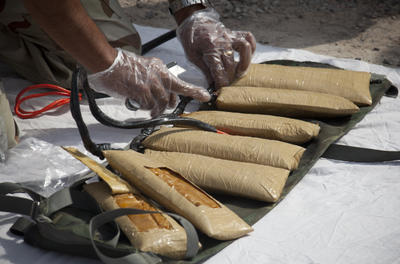The killing or arrest of various senior Taliban leaders does not alter their calculus. And with victory seemingly certain, they have made clear that they are no longer interested in peace talks. The Taliban’s recent assassination of the former Afghan president Burhanuddin Rabbani is a case in point.
While the international community is rightly critical of Pakistan’s role in destabilising the situation in Afghanistan, the war of words that began after Raymond Davis’ arrest earlier this year has diverted attention from positive developments within Pakistan. If adequately supported, these small developments could push Pakistan onto a different trajectory.
A bill was introduced to Pakistan’s National Assembly earlier this year, for example, to amend Article 251 of the country’s constitution. The current article only recognises Urdu — which is the mother tongue of less than 10 per cent of the population — as Pakistan’s national language. The amending bill sought to confer national language status on seven more ‘regional’ languages. This is momentous in a country that has not historically budged from its stringent Urdu-only policy. Another development that deserves attention is a 2009 order to extend province-like status to Gilgit-Baltistan, which lies in the disputed territory of Pakistan-administered Jammu and Kashmir. It is the first ‘province’ in Pakistan where heterodox Islamic groups form a substantial proportion of the population. Gilgit-Baltistan is culturally alive; for example, movements exist for the re-introduction of the Balti language’s Tibetan script and the protection of the region’s Buddhist heritage.
In principle, smaller provinces not only support more responsible governments, but also empower ethnic and religious minorities, as they can seek representation in provincial government. Their empowerment would limit the space available to extremists. Pakistan’s demographic and cultural mosaic is its strongest bulwark against extremism, and any policy that protects this deserves support. Together, these first two developments could open a new chapter in the history of Pakistan, whose elite have so far dreaded ethno-linguistic diversity and worked with religious extremists to erase sub-national differences.
In another recent development, Pakistan seems favourably inclined to confer most favoured nation status on India. One could argue that this is an ordinary development. But where India and Pakistan are involved everything is extraordinary — which is evident from the fact that Makhdoom Muhammad Amin Fahim is possibly the first Pakistani commerce minister to visit India in almost four decades.
An anti-terrorism court also recently sentenced to death Mumtaz Qadri, who killed Punjab Governor Salmaan Taseer, a remarkable decision given Qadri’s status as ‘a hero of Islam’. The Minister for Minority Affairs, Shahbaz Bhatti — who like Taseer supported amendments to blasphemy laws — was gunned down soon after Taseer, and Taseer’s son was kidnapped not long ago. This shows how extraordinary the sentencing really was.
A Pakistan more accepting of diversity also continues to thrive. It celebrated the 75th martyrdom day of Lala Lajpat Rai, a Hindu, in 2003 by naming a street after him in Quetta, the city which allegedly plays host to Taliban leaders. It also commissioned the army’s first Sikh officer in 2007 and inducted a non-Muslim as federal cabinet minister for minority affairs in 2008.
Unfortunately, the above developments have not been given due importance, even though they are precisely what Pakistan needs to get rid of religious extremism: respect for ethno-linguistic and religious diversity, normalisation of trade relations with neighbours and the perpetrators of terrorism being brought to justice. These developments might represent very small steps, but they show that Pakistan’s liberal constituency is still fighting for public space.
The US and the international community should work with this constituency to facilitate change. Pakistan should be encouraged to protect and empower religious and secular liberals. This can be done by persuading the government to create and empower smaller provinces and encourage regional languages. But the US has spent all its energies on defending the self-defeating drone attacks, finding the elusive ‘soft Taliban’ and securing the release of Raymond Davis. Still, the developments discussed above suggest that it is not too late. Instead of being disillusioned, the US and the international community should renew their engagement with Pakistan and empower local agents of change if they want sustainable military successes in the War on Terror.
Vikas Kumar is Assistant Professor of Economics at Azim Premji University, Bangalore.


A fine analysis. We don’t often hear about these stories.
We don’t often hear about these stories because the international media is always busy discussing how the world can save Pakistan from itself. In the process it overlooks the domestic sources of resistance to extremism.
Good points.
I think these things are not covered in media because:
1. They are too small a step – rather gestures. They hardly stack up in the list of things that really impact people.
2. They do not conform to stereotypes.
Probably you right. Highlighitng and encouraging such “gestures” could potentially change the trajectory and bring about positive changes.
The Language Bill and Gilgit-Baltistan ESG Order are not small steps. They have the potential to turn the current Pakistani establishment upside down and start a new chapter in the history of Pakistan.